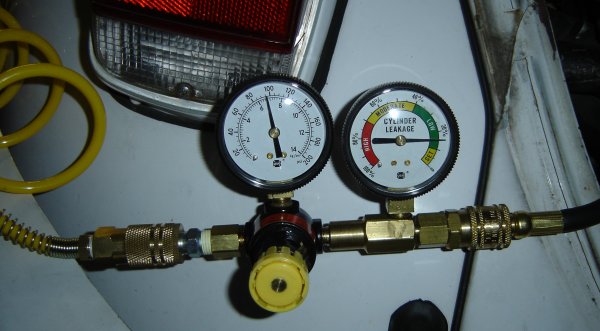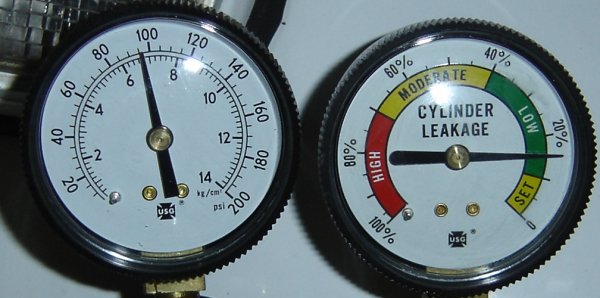A gasoline engine is an Otto Cycle engine, which depends on being able to compress the air/fuel mixure and when that mixure has burned (and thus gotten hot) being able to mechanically harness the expansion of the hot gasses. The better the combustion chamber is at sealing, the better and more efficiently the engine will run.
So a very important diagnostic test of the health of a gasoline engine is to "pressure test" the cylinders. One way to do this is to employ a "leak-down" tester:

High pressure air comes in from the left, and the right side is connected to a hose with a special hose end that fits into the spark plug hole in the cylinder (instead of the spark plug). The gauge on the left reads the input pressure, the gauge on the right essentially tells you how "good" the cylinder is at holding that pressure. I recently discovered that the valves on the right side (cylinders #1 and #2) of my beetle had drifted drastically out of spec in roughly 1000 miles, which typically indicates trouble. I bought the above pressure tester on ebay and tested all four cylinders on Friday. The testing indicated the same story, cylinders 1 and 2 are not happy, cylinders 3 and 4 are fine. Here is the reading on one of the good cylinders:

So I will definitely need to pull the engine and at least look at the combustion chamber side of the right hand cylinder head to try to diagnose what's going on. Keep in mind, since I was just figuring out how to do this, I did tests tests with the engine cold, which is not the correct way. Now that I roughly know what I'm doing, I will take the car out for a drive and test the cylinders again with the engine warm.